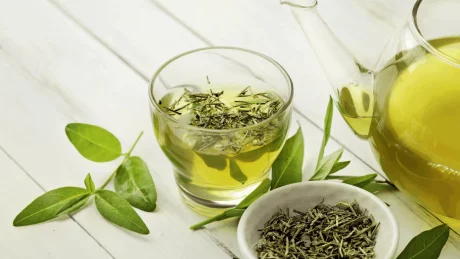According to results of a study published in Cancer Prevention Research, a journal of the American Association for Cancer Research, men with prostate cancer who consumed the active compounds in green tea demonstrated a significant reduction in serum markers predictive of prostate cancer progression.
Green tea is the second most popular drink in the world, and some epidemiological studies have shown health benefits with green tea, including a reduced incidence of prostate cancer, according to James A. Cardelli, Ph.D., professor and director of basic and translational research in the Feist-Weiller Cancer Center, LSU Health Sciences Center-Shreveport. However, some human trials have found contradictory results. The few trials conducted to date have evaluated the clinical efficacy of green tea consumption and few studies have evaluated the change in biomarkers, which might predict disease progression. Cardelli and colleagues conducted an open-label, single-arm, phase II clinical trial to determine the effects of short-term supplementation with green tea’s active compounds on serum biomarkers in patients with prostate cancer. The biomarkers include hepatocyte growth factor (HGF), vascular endothelial growth factor (VEGF) and prostate specific antigen (PSA). HGF and VEGF are good prognostic indicators of metastatic disease. The study included 26 men, aged 41 to 72 years, diagnosed with prostate cancer and scheduled for radical prostatectomy. Patients consumed four capsules containing the equivalent to about 12 cups of normally brewed concentrated green until the day before surgery. Findings showed a significant reduction in serum levels of HGF, VEGF and PSA after treatment, with some patients demonstrating reductions in levels of greater than 30 percent, according to the researchers.

Results of a recent year-long clinical trial conduced by researchers in Italy demonstrated that consumption of green tea polyphenols reduced the risk of developing prostate cancer in men with high-grade prostate intraepithelial neoplasia (HGPIN).

“These studies are just the beginning and a lot of work remains to be done, however, we think that the use of tea polyphenols alone or in combination with other compounds currently used for cancer therapy should be explored as an approach to prevent cancer progression and recurrence,” Cardelli said.
“There is reasonably good evidence that many cancers are preventable, and our studies using plant-derived substances support the idea that plant compounds found in a healthy diet can play a role in preventing cancer development and progression,” said Cardelli.










